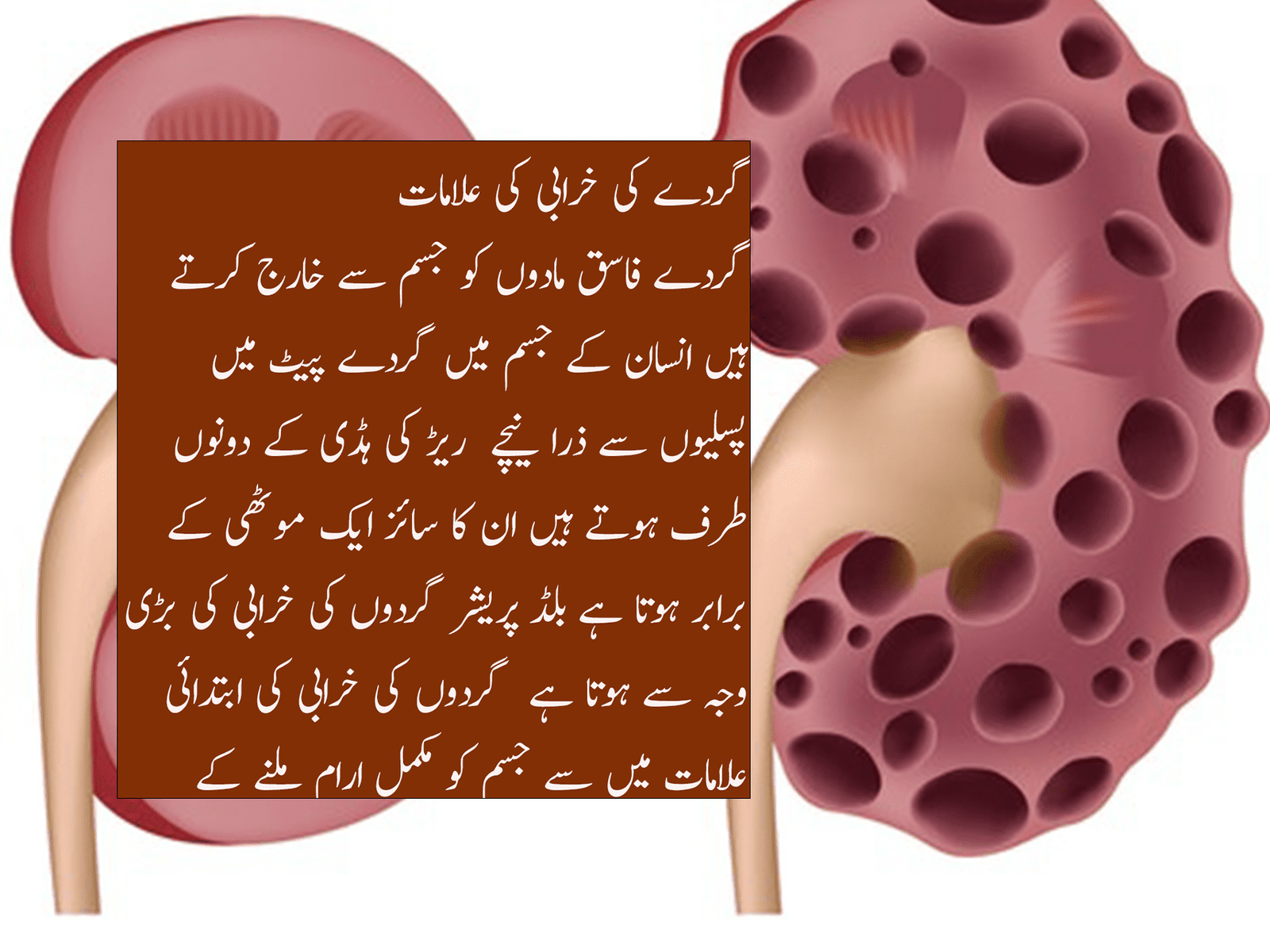Recognizing the Silent Signs: Symptoms of Kidney Failure
Kidney failure, also known as renal failure, is a serious medical condition in which the kidneys lose their ability to effectively filter waste and excess fluids from the blood. Early detection of kidney failure symptoms is crucial for timely intervention and proper management. In this article, we’ll delve into the subtle signs that could indicate kidney failure, allowing you to seek medical attention promptly.
Changes in Urination
One of the earliest and most noticeable symptoms of kidney failure is changes in urination patterns. These changes can include:
- Increased frequency of urination, especially during the night.
- Decreased urine output.
- Foamy or bubbly urine.
- Darker urine than usual, possibly with blood.
گردے کی خرابی کی علامات
گردے فاسق بالوں کو جسم سے خارج کرتے ہیں انسان کے جسم میں دو پیٹ میں پسلیوں سے ذرا نیچے ریڑ کی ہڈی کے دونوں طرف ہوتے ہیں ان کا سائز ایک مھٹی کے برابر ہوتا ہے بلڈ پریشر گردوں کی خرابی کی بڑی وجہ ہے گردوں کی خرابی کی ابتدائی علامات میں سے
جسم کو مکمل ارام ملنے کے باوجود اگر انکھوں کے گرد ہلکے برقرار رہے تو فورا ڈاکٹر سے رجوع کریں گردوں کی خرابی سے خون صاف کرنے کا کام متاثر ہوتا ہے جس کی وجہ سے جسم پر خارج اور سرخ نشانات کےہو سکتے ہیں
گردوں کی خرابی کی ایک عام وجہ جس میں نہ کھانے کو دل کرتا ہے گردوں کے افعال کی سے خون میں زہریلا مواد جمع ہونے لگتا ہے جس کا اثر منہ کے ذائقے پر پڑتا ہے اور کھانا تلخ کڑوا یا معمول سے ہٹ کر لگتا ہے
گوشت کھانے کا لطف ختم ہو جاتا ہے اور سانس لینے میں دشواری پیدا ہو جاتی ہے گردوں کی خرابی سے پیشاب زیادہ انے لگتا ہے یا پیشاب کی بار بار خالی ہوتی ہے لیکن اتا نہیں پیشاب کی وجہ سے راتوں کو جاگنا پڑتا ہے رنگت گہری ہو جاتی ہے میں خون بھی ا سکتا ہے اس کے علاوہ دن کے دوران سانس لینے میں دشواری ہوتی ہے جسم میں ہیموگلوبن کی کمی کی مقدار بڑھنے سے دل کی دھڑکن میں غیر معمولی تیزی ا جاتی ہے
Swelling and Fluid Retention
Kidney failure can lead to fluid retention in the body, resulting in swelling in various areas, such as the ankles, legs, feet, and even face. This swelling, known as edema, occurs due to the kidneys’ inability to remove excess fluid and waste from the body.
Fatigue and Weakness
A common symptom of kidney failure is persistent fatigue and weakness. This occurs because the kidneys play a crucial role in producing a hormone called erythropoietin, which stimulates the production of red blood cells. In kidney failure, lower levels of erythropoietin can lead to anemia, resulting in fatigue and reduced energy levels.
Shortness of Breath
As kidney function declines, excess fluid can accumulate in the lungs, leading to difficulty in breathing and shortness of breath. This symptom can worsen over time and may be particularly noticeable during physical exertion or while lying down.
Nausea and Vomiting
Kidney failure can cause a buildup of waste products and toxins in the blood, leading to feelings of nausea, vomiting, and loss of appetite. These symptoms can contribute to weight loss and a general sense of discomfort.
Metallic Taste in the Mouth
Some individuals with kidney failure may experience an unusual metallic taste in their mouth or a persistent ammonia-like odor in their breath. These sensory changes can be attributed to the accumulation of waste products in the bloodstream.
Itchy Skin
The buildup of waste products and minerals in the blood can lead to skin itching and dryness. This symptom, known as uremic pruritus, can be quite bothersome and affect the quality of life.
Muscle Cramps
Muscle cramps, particularly in the legs, can be a sign of electrolyte imbalances due to kidney dysfunction. Potassium and other electrolyte levels can become disrupted, leading to muscle twitching and cramping.
High Blood Pressure
Healthy kidneys play a role in regulating blood pressure. Kidney failure can disrupt this balance, leading to elevated blood pressure levels. In turn, high blood pressure can further damage the kidneys, creating a vicious cycle.
Changes in Mental Function
As waste products accumulate in the bloodstream, they can impact cognitive function. Individuals with kidney failure may experience difficulty concentrating, memory problems, and even confusion.
Conclusion
Kidney failure is a serious condition that requires prompt medical attention. Recognizing the symptoms and seeking timely intervention is crucial for effective management and preservation of kidney function. If you or someone you know experiences any of these symptoms, especially if they are persistent or worsening, consult a healthcare professional for proper evaluation and guidance. Early detection and proper care can make a significant difference in maintaining kidney health and overall well-being.





